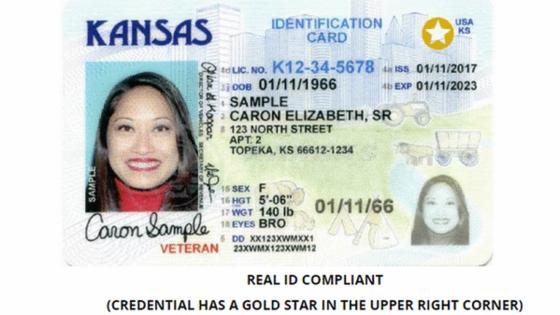After 2-year ban, trans Kansans will get to change gender on driver's licenses
Published in News & Features
For the first time in more than two years, transgender Kansans will be allowed to change the gender on their driver’s licenses and state identification cards.
The Kansas Supreme Court on Monday denied Attorney General Kris Kobach’s request to hear arguments in the lawsuit he brought against the Kansas Department of Revenue over its practice of accommodating gender marker change requests.
Kobach’s legal challenge brought the practice to a halt in July 2023 under a series of court orders, but Monday’s rejection, signed by Chief Justice Marla Luckert, clears the way for the agency to ensure that state documents accurately reflect Kansans’ identities.
Licenses note the driver’s sex with either an “M” or “F” along with their height, weight and eye color.
“Following the Kansas Supreme Court’s decision to deny review, the Court of Appeals ruling that set aside the temporary restraining order is now final,” KDOR spokesperson Zachary Denney said in an email statement. “As a result, the Department will resume processing gender marker changes on driver’s licenses in accordance with procedures that were in place prior to July 1, 2024.”
According to the ACLU of Kansas, which joined the case on behalf of five trans Kansans, the order reversing the temporary injunction against KDOR will go into effect Oct. 6.
“The Kansas Supreme Court’s decision this week will finally bring an end to nearly two years of government intrusion on trans Kansans’ privacy and put a stop to the attorney general’s efforts to forcibly out people in their daily lives,” said Julie Murray, co-director of the ACLU’s State Supreme Court Initiative, in an email statement.
A spokesperson for Kobach’s office did not immediately respond to requests for comment. Gov. Laura Kelly offered a matter-of-fact appraisal of the Supreme Court’s decision in an email statement.
“I am glad the Kansas Department of Revenue can resume issuing credentials that align with the law,” Kelly said.
The Supreme Court’s refusal to take up the case marks a second high-profile legal defeat for Kobach this week. Also on Monday, a Shawnee County District Court judge dismissed Kobach’s lawsuit against Kelly over her refusal to share the personal information of food assistance recipients with the U.S. Department of Agriculture.
The right to exist authentically
Kobach’s office argued in court filings that transgender Kansans being allowed to update their gender markers constituted a violation of a 2023 state law, SB 180, that bans trans people from single-sex spaces.
Senate Minority Leader Dinah Sykes, a Lenexa Democrat, welcomed the high court’s dismissal of the lawsuit and cautioned against weaponizing the legislative process to target marginalized people.
“I disagreed with SB 180 when it was passed in 2023,” Sykes said in a statement. “Its insulting reduction of women and men to their reproductive capacity remains an alarming, dystopian view on the wide ranging spectrum of human experiences.”
Will Rapp, managing director for the Kansas chapter of the Gay, Lesbian, and Straight Education Network, previously told The Star that permitting gender marker changes affirms “the fundamental rights of trans Kansans to live as their authentic selves.”
“Denying transgender people the ability to update their driver’s licenses and state IDs is not only discriminatory — it puts them at an increased risk of harassment, violence, and systemic barriers to healthcare, employment, housing and education,” Rapp said.
Litigating identity
Kobach’s attorneys argued, among other things, that inaccurate information on a driver’s license could affect law enforcement’s ability to accurately identify a person and that “a mismatch between the sex on a warrant and identification could allow a wanted person to escape.”
In a June ruling, a three-judge Kansas Court of Appeals panel rejected Kobach’s arguments in no uncertain terms.
“No one was able to bring forward any instance of the feared harm of misidentification of criminals in the last 16 years or even the potential that it could be a problem,” wrote Judge Karen Arnold-Burger. “Instead, the evidence was overwhelming that there was no harm.”
KDOR has allowed for gender marker changes on driver’s licenses and state IDs since 2007.
Between 2011 and 2022, roughly 380 Kansas drivers had the sex designation on the front of their license changed, Arnold-Burger noted. That accounts for 0.004% of the more than 9 million licenses issued by the state over 11 years.
In the petition for review to the Supreme Court, Kobach disputed the Court of Appeals’ assessment that “sex” and “gender” have distinct definitions under Kansas law.
The AG argued the two terms are interchangeable — a key contention used to justify how the ban on trans people in single-sex spaces applies to gender markers on state IDs.
“Up until recently, ‘gender’ was seen by many as a more polite way to refer to biological sex, without the salacious implications of the word ‘sex,’” Kobach wrote.
He also claimed the Court of Appeals placed too high a burden on his attorneys to demonstrate how the state might be harmed if trans Kansans are allowed to change a letter on their IDs.
“The State does not need to prove harm will definitely occur,” Kobach wrote. “... Instead, the State only needed to show a ‘reasonable probability’ of an irreparable future injury exists, which is a much lower standard than the applicable burden at trial.”
©2025 The Kansas City Star. Visit at kansascity.com. Distributed by Tribune Content Agency, LLC.







Comments